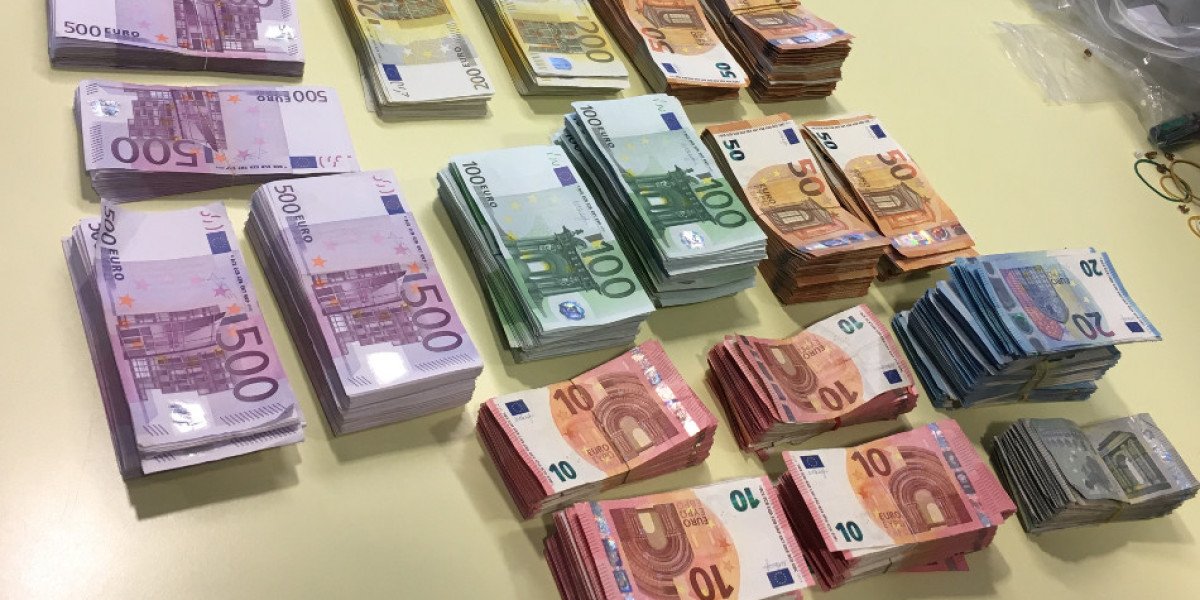Understanding the World of Counterfeit Money: The Rise of Online Shops
In the last few years, an unpleasant phenomenon has actually emerged with the development of online shopping: the sale of counterfeit money. This illicit market has gotten traction along with the legitimate e-commerce market, raising questions about legality, security, and ethical factors to consider. This article digs into the world of counterfeit money, exploring its implications, the factors behind its development as an online product, the threats involved for purchasers and sellers, and the measures being taken to fight this problem.

The Nature of Counterfeit Money
Counterfeit money refers to currency that has been produced without legal sanction, with the intent to deceive. It typically simulates genuine currency in appearance, texture, and, in some advanced cases, even its holographic functions. Counterfeiting is a crime in most jurisdictions around the world and can carry extreme penalties ranging from fines to imprisonment.
Why Counterfeit Money?
Revenue Motive: Counterfeiters aim to manufacture money that can be passed off as real currency for goods and services.
Accessibility: The availability of printing innovation and materials has made it easier for individuals to produce counterfeit money.
Online Marketplaces: The anonymity of the web has sustained the growth of marketplaces where counterfeit money can be purchased and sold with increased secrecy.
The Online Market for Counterfeit Money
As technology advances and more individuals turn to online shopping, the counterfeiting market has adapted. A number of online platforms provide counterfeit currency, exploiting cryptocurrencies and encrypted deals to secure anonymity and avert police.
Popular Platforms for Counterfeit Money
Dark Web Marketplaces: Platforms like Silk Road and AlphaBay have become well-known for the trading of counterfeit goods, consisting of money.
Social Media and Forums: Some people take to social networks platforms and niche forums to get in touch with purchasers and sellers, typically employing coded language to prevent detection.
Peer-to-Peer Networks: Certain chat applications allow users to exchange goods and info while preserving personal privacy.
Dangers Involved in Buying Counterfeit Money
For Buyers
Legal Consequences: Purchasing counterfeit money is unlawful and can lead to criminal charges, consisting of fines and imprisonment.
Financial Loss: Buyers might invest significant sums on counterfeit currency that can not be exchanged genuine value.
Frauds: The anonymity of online markets can expose purchasers to scams, where they might pay for counterfeit currency that is never ever provided.
For Sellers
Legal Repercussions: Just like purchasers, sellers deal with serious legal consequences, consisting of substantial fines and potential prison time.
Safety Risks: Engaging in the sale of counterfeit money might result in fights with law enforcement or competing counterfeiters, positioning individual safety threats.
Track record Damage: Being captured selling counterfeit money can ruin an individual's track record and future employment potential customers.
The Role of Law Enforcement
Government authorities are aware of the escalating concern of counterfeit money in online marketplaces. Different methods have been used to combat this problem:
Increased Surveillance: Law enforcement firms are employing sophisticated tools to keep track of suspicious online activities.
Collaboration with Tech Companies: Authorities team up with major tech and social networks companies to determine and take down counterfeit networks.
Public Awareness Campaigns: Educating the public about the threats and legal threats related to counterfeit money intends to discourage possible purchasers.
Often Asked Questions (FAQs)
1. Is it legal to possess counterfeit money?No, beste Webseite für falschgeld having counterfeit money is prohibited in the majority of jurisdictions and can cause considerable legal repercussions. 2. How can I determine counterfeit
money?To identify counterfeit money,
check for unique features such as watermarks, security threads, and holograms. Special UV lights and amplifying glasses can assist in detection. 3. What should I do if I receive counterfeit money?If you get counterfeit money, do not attempt to utilize it. Report it immediately to your local law enforcement firm. 4. Why do individuals buy counterfeit money?Some individuals may acquire counterfeit money out of desperation
, lack of knowledge of the law, or in an effort to manipulate legitimate financial systems for individual gain. 5. Are there penalties for offering counterfeit money?Yes, individuals captured offering counterfeit money can deal with serious penalties, including fines and jail time, along with a criminal record. The development of
online look for counterfeit money underscores a complicated interaction of technology, economics, and legality. While some might see it as a simple way to generate income or prevent traditional banking systems, the dangers are profound and significant. Law enforcement continues to adapt to fight this growing pattern, emphasizing the value of public awareness and education. As society navigates the evolving landscape of online commerce, comprehending the risks of counterfeit money stays vital. Individuals are advised that while the attraction of easy revenues may be appealing, the legal repercussions are much more significant, creating lasting damage that transcends instant financial gain. It is necessary to remain vigilant and notified in a world where digital deals continue to thrive.







